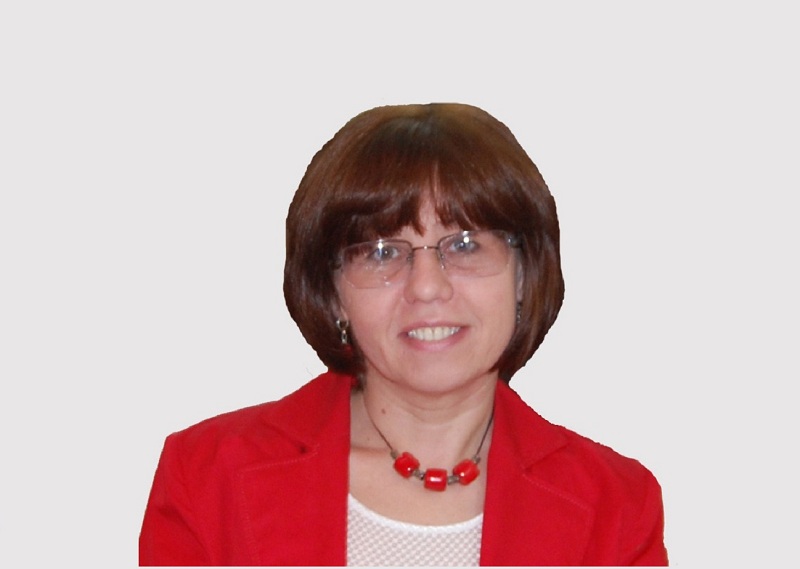Actuaries are often mathematicians in the economy, i.e. the specialists in the exact sciences in environment that is hard to plan. Regulators all over the world attach great importance to the work of actuaries, who often act as forecasters, and whom trust almost unlimitedly.
- Dina Stanislavovna, one of the main instruments of the actuary is estimation. But the environment (including the economy) of calculations of the actuary is constantly changing. How and on what basis does the actuary manage being accurate?
- There are a number of specialists, for example, economists, financiers, as well as actuaries specializing in life insurance and pensions, who make long-term forecasts, and the element of estimation plays an important role in this. Estimation does not come from nowhere. These are always conclusions based on a very thorough analysis, ideally, qualitative, complete, reliable data. Analysis of the data implies the identification of patterns and trends, as well as an assessment of whether such patterns and trends will continue in the future, taking into account the expected changes and innovations. The future cannot be predicted only on the basis of past experience. Trends may change, especially in our volatile economy.
The expert should also check the quality and reliability of the data. Unfortunately, as a rule, there are errors and inconsistencies in the data. Sometimes you also face obvious data falsification. If there is reason to doubt the quality of information, the expert conducts reconciliation of similar data from several sources in order to correct the figures and, as a result, obtain more reliable estimates. I had to deal with situations where the error in data was too big, or data was not enough to get reliable estimates. It was necessary to look for alternative sources of information, including foreign ones, and to assess their applicability in each specific case.
In cases where it is not possible to correct mistakes and inconsistencies, the expert tries to estimate how large the error is. With an acceptable level of error, relatively reliable estimates can be obtained. If mistakes and inconsistencies in data are significant, the actuary is compelled to take the most conservative estimate, with a high risk load. As applied to insurance, this is done to ensure the solvency of insurance organization and protect the interests of policyholders.
In the performance report, the expert should describe all the data used and any errors identified, and inconsistencies in data that could affect the reliability of the results. If necessary, the report may contain reservations that conclusions and results should be treated with caution. The client should be clearly aware of the level of reliability of results obtained.
In fact, point estimates are a 100% error probability, that is, in fact, the lack of information. No parameter in reality will take the projected value; there will always be some, sometimes, a significant deviation.
What is the advantage of the actuarial profession? Since actuaries deal with uncertain, random events, they always consider the entire range of possible values of random variables and their probability distributions and use not deterministic but stochastic models. The client has a certain risk tolerance, and with this in mind, the actuary determines the risk margin. A good illustration of this approach is to determine the level of capital of an insurance organization that ensures its solvency with a probability of 99% in accordance with the requirements of the European Union's Solvency System. Please note that it is impossible to ensure a 100% probability of solvency. There are some catastrophic losses, force majeure, which no one predicts.
The results of the actuary's work are not a point value, but the distribution of values and, at times, a whole complex of options and recommendations, describing advantages and disadvantages of each option. The decision-maker, on the basis of all this information, decides which option is most preferable for him, taking into account risk tolerance and other criteria.
Due to the fact that the actuary deals with uncertain events, the main question characterizing the work of the actuary is "What if ...?"
Actuaries use various tools for conducting a complete actuarial analysis, such as sensitivity tests of results to changes in key input parameters, and stress tests using extreme scenarios: what if a critical parameter, for example, the nominal rate of return, drops to zero or negative value; and that if the death rate for annuity products suddenly turns out to be extremely low, or for life insurance products - very high. How much then will the loss of the product rise or deteriorate financial indicators of the insurance organization? Stress tests can assess what additional resources will be required to cover extreme losses.
At a minimum, during the analysis, the actuary considers three scenarios - pessimistic, basic and optimistic. Developing scenarios with agreed input parameters is not an easy task, because human behavior, demography, and finances depend on economic parameters. It is necessary to assess the interdependence of economic, demographic and financial parameters. Sometimes it is necessary to take into account behavioral factors.
- Please give examples from our practice
- Economic instability in our country, with a sharp change in the dynamics of socio-economic, financial and demographic indicators, significantly complicates the assessment of interdependencies and predicting future changes. So, in the early 90s, after the collapse of the Soviet Union, the death rate sharply rose, inflation after the introduction of the national currency ran high; no expert would have predicted such drastic changes. And from 2003 to autumn 2007 there was a "rich" period, after oil prices increased. The influx of money into the economy caused a construction boom. But, paradoxically, during this period it was not easy with investments in pension funds. A significant share of assets was invested in dollar instruments. Due to the devaluation of US dollar against tenge, the nominal yield of the investment portfolio fell sharply, while the real yield was negative.
These years, due to raise in level of economic activity, mortality and injuries in production have increased, especially in construction, where the level of safety engineering is extremely low in our country. These changes were difficult to predict and, moreover, quantify before they occurred.
Then the financial crisis came, and again the situation was unstable. In 2008, for example, even the nominal yield of pension assets was negative, and the real yield dropped to an extraordinary negative value of -18% (!). I do not have information on the dynamics of investment returns on the investment portfolio of insurance companies for those years, but I assume the situation was similar.
I already spoke about the problem of poor data quality. Add to this the inadequacy of data to obtain reliable estimates. For example, if an insurance organization has been recently established or is small, any estimates obtained from the data of such an organization are of low reliability.
The professionalism of the actuary and quality and completeness of data are the main factors determining the degree of accuracy / quality of estimation.
- Do you teach estimation at the courses of actuaries?
- Actuarial profession is very complicated and critical; it takes 10 years or more to obtain full qualification abroad. In Kazakhstan, to the level of countries with a developed actuarial profession, we certainly have not reached yet.
I am talking about the ideal actuarial education. Basic technical and business disciplines include the theory of probability and mathematical statistics, statistical methods, financial mathematics, actuarial mathematics, actuarial modeling, stochastic modeling, actuarial risk management, micro and macroeconomics, corporate finance, accounting and financial reporting analysis, investment management and evaluation assets, as well as the basics of demography, including the construction of mortality tables.
Special courses are devoted to applying the knowledge gained in life insurance, general insurance, pensions, investment management and risk management. Regulation, taxation and financial reporting in these areas of activity of actuaries are also studied in special courses. In other countries such courses are very complex, and that is where the skills of estimation “working out” develop. Students consider the difficult practical cases that need to comprehensively analyze, allocate the necessary information to build a model to carry out calculations, to arrive at professional conclusions. The ready-made formulas are not enough; you need to work hard with your brains. By the way, in certain exams for special courses, the open-book exams are allowed for the preparation of the answer. Unfortunately, the exam does not become easier.
Also, a course on professionalism dedicated to the characteristics and standards of the profession and the professional role of actuary is mandatory. The practical classes of the course deal with complex ethical cases, for example, when the actuary is under pressure, or there is a conflict of interest.
Only after completion of such a training program, the actuary has the right to work in the chosen branch of actuarial activity independently.
- And what is the situation in Kazakhstan?
- Actuarial activity in the insurance market in Kazakhstan is carried out only on the basis of a license issued by Halyk Bank. This is due to the high level of liability of actuaries. The solvency of insurance organizations and the financial well-being of policyholders depend on actuary's actions.
There are a number of professions with a similar level of responsibility: brokers in the securities market, appraisers, auditors, lawyers. In such professions, there is a need for common standards of qualification, a code of professional ethics and standards of practice, and, in the event of their violation, effective disciplinary measures. To ensure this, professional associations are created. The Society of Actuaries of Kazakhstan was established in 2001.
The minimum training program for actuaries in Kazakhstan consists of two basic and four special courses. At all courses, including special ones, candidates master mainly technical knowledge and skills. Analysis of complex situations is not included in the curriculum. Therefore, the skills of making estimations in our courses are unfortunately not acquired. That is why an actuary is forced to learn by doing. The actuaries pass the course on professionalism but most young students who do not have experience in the insurance organization, in fact, are not yet ready for this course, because they do not know the business from the inside. Abroad, by the time this course is taken, actuaries, as a rule, already have practical work experience.
We gradually complicate our courses by increasing the scope of topics, introduing elements of situational analysis, thereby trying to help actuaries in developing judgment skills. For example, within the framework of the course on regulation and supervision of financial organizations, students must conduct an analysis of solvency of an insurance organization on the basis of a large body of information. However, this is certainly not enough; this cannot be done quickly, we also learn on the go. There are mandatory requirements for professional development overseas. Ideally, every actuary should participate in conferences, seminars, and continuously engage in self-education. We try to organize seminars on special topics of actuarial science and practice for the members of the Society with a view to improving their qualifications. However, the requirements for continuing professional development are not yet compulsory.
- In this regard, how do you assess the level of our actuaries?
- For objective reasons, our actuaries are less prepared than in countries with a developed actuarial profession. We are constantly working to eliminate the existing gap in training, but this takes time.
It is worth pointing out that our training program, in general, corresponds to the educational standards developed by the International Actuarial Association (IAA). The fact that the Society of Actuaries of Kazakhstan received the status of a full member of the IAA last year confirms that (up to 2017 the Society was an associate member). Together with the former Board Chairman of the Company Akzharkyn Knykova we prepared a package of documents for filing the application of the Company for the status of a full IAA member. IAA experts gave us some comments on our training program, but they were of an optional (advisory) nature, and there were no significant comments.
Overseas, an actuary after completing a basic training program starts working in an insurance company and passes qualification exams at special courses on-the-job. He works with an experienced actuary who tutors him. Before getting the full qualification and a status of a full member of a professional association such actuary has no right to certify the reserves of the insurance company and is not liable in case of an inadequate assessment of reserves.
In our country young actuaries who have finished the training program and have no operational experience, frequently have to carry out difficult tasks, certify reserves and bear responsibility on them; without having an opportunity to consult with a skilled expert on time.
As I mentioned earlier, in our courses, students master, mainly, technical knowledge and skills. They have not yet experienced the business specifics, they are not fully aware of level of responsibility and all the consequences of the decisions they make. Awareness comes in real situations, as experience accumulates.
Young actuaries need time to "build up professional muscles." It is not advisable to assign super tasks before them that exceed the level of their current competence, since this can deprive them of self-confidence and, ultimately, lead to their withdrawal from the profession. Due to lack of experience, young actuaries sometimes miss something or make mistakes.
In other countries, an experienced mentor when checking the work of a young colleague would point out such shortcomings and mistakes, they would be corrected on time, and there would be no negative consequences. And if we do not have such an experienced mentor in an insurance organization, actuarial conclusions with shortcomings and mistakes are presented to Halyk Bank, the authorized body issues regulations and warnings that inevitably affect the reputation of the young actuary and undermine his self-confidence. As a result, some actuaries do not stand the responsibility and go into risk management. From a technical point of view, the work of a risk manager is not as difficult as an actuary's work, the salary is the same, and a risk manager is not personally responsible for results of his work.
I would also like to point out that it is difficult for a young specialist who recently came to the company from a student's bench to resist the pressure of the management. In the event of weakening of a financial standing of the insurance organization, the management may require the actuary to lower the reserve estimate. That's why I mentioned the need to "build up professional muscles".
Our Society tries to help young actuaries in difficult situations. Experienced members of the Society can be contacted for a consult and professional advice. Besides, the Company is developing methodological recommendations for certain types of actuarial calculations.
It is hoped that in the foreseeable future the number of actuaries in our country will grow to the level when all young actuaries will have the opportunity to initially work under the guidance of experienced specialists. Unfortunately, the financial crisis has led to a sharp decline in influx of new students, and the number of actuaries in recent years has practically not changed. Starting from 2010, the number of actuarial courses held was dramatically reduced, since the number of candidates registering for courses is insufficient to cover the expenses of the Company in organizing and conducting these courses.
- Dina Stanislavovna, since the judgment plays a big role in actuarial evaluations, I would like to know if there is a legislative confirmation to evaluation.
It is a double edge effect. Financial regulation in developed countries is shifting from rules to principles, toward greater confidence in judgments and estimates of professionals than towards certain stipulated rules. When the permissible values of parameters and calculation methods are determined in regulatory legal acts, this simplifies the work of professionals, and the role of judgments is significantly reduced. If the use of parameter values within the fixed intervals and calculations in accordance with stipulated procedures lead to an inadequate assessment of reserves, the actuary is not responsible for this because he acts in accordance with the law requirements.
But, under the conditions of our unstable economy, when, on average, every 5 years the situation changes dramatically, one or another standard may become irrelevant.
Besides, regulations based on appointed rules do not take into account the differences in the overall level of risk for insurance companies; insurance organizations, for example, with more stringent underwriting and pricing policies, do not have advantages over aggressive companies.
The shift from rules to principles is a world trend, including accounting. However, regulation based largely on principles, but not rules, is feasible only if the level of professionalism of both workers in insurance organizations and those of the regulatory body is high. I already said that level of professionalism of our actuaries is not sufficient yet to fulfill such complex tasks. This also refers to the regulator, as the regulator has been operating in market conditions for a limited period of time.
- How do the license given to all who have received training, but not always have enough experience, and accuracy in estimation polished over the years correlate?
- In my opinion, they practically don’t. As I said earlier, actuarial education in Kazakhstan focuses mainly on technical aspects, and therefore the quality of the actuary's estimation currently depends on work experience. Over a certain period of work in the insurance market, he acquires the skills of analyzing complex practical situations, realizes the level of responsibility and gets used to asking the question "What if ...?"; thus, he learns to analyze carefully and comprehensively, which increases the quality of judgments. The individual qualities of the actuary are of the great importance as well.
Today, the experience of working in an insurance organization to obtain an actuarial license is not required. However, such requirement should be present.
- Some insurers doubt in need of an actuary if there is no guarantee of accuracy of judgment.
- To tell the truth, it is interesting to hear about guarantees from representatives of the industry, whose main "raw materials" for the product are uncertain events. In fact, there is no one hundred percent guarantee in any trade, activity or profession that the actual result will match the planned or expected, or calculated ones. Just the probability that something goes wrong may be higher or lower.
In those professions where the probability of deviations between actual results and planned ones is small, and the specialist is not personally responsible for the result, he can afford to give out guarantees. Professionals, who bear personal responsibility for the result and clearly realize that the result cannot be guaranteed, will not give false promises to the client. I spoke earlier about a number of professions with a high level of responsibility. In accordance with the code of ethics to which representatives of these professions submit, the specialist has no right to guarantee the expected results, but he must make every possible effort to obtain such results. For example, an investment manager has no right to guarantee a target high level of profitability to an investor, but must make every effort to achieve it. The lawyer has no right to guarantee the defendant that he will be found innocent, but must act in the interests of the defendant and make every effort to justify him or reduce the sentence. The lack of guarantees in such professions does not mean that these professions are not needed. Professionals have certain knowledge and experience, and by virtue of this only they can carry out this or that kind of activity. The honest confession of a professional that the result is not guaranteed is an example of ethical behavior, and the client should trust such specialist precisely, and not someone who tries to deceive him by providing false guarantees, often on the basis of his own selfish interests.
To my mind, all the benefits of the work of actuaries are not realized by insurers working with young actuaries who do not have sufficient experience and professional energy. I believe in the companies where actuaries are more experienced, it is never an issue. An experienced actuary not only calculates tariffs and reserves, but also analyzes the actual profitability of certain insurance products and the insurance portfolio in general, raises many questions and optimal solutions before the company management. And the management can appreciate the benefits and usefulness of actuarial analysis. A true professional will never put the blinders on problems but make analysis, sometimes not included in his direct duties. In accordance with the Code of Ethics, the actuary must act on the basis of professional responsibility before society. Therefore, there is no wonder the actuaries quickly grow to senior positions in insurance organizations.
In other countries, it is actuaries who often lead the key non-actuarial structural divisions of insurance companies, such as underwriting, risk management, internal audit, and tax department. They also take positions of presidents and vice presidents of companies. Actuaries are willingly hired by investment funds and production enterprises. The advantage of actuaries in comparison with other specialists is in their work approach with risk assessment and management, as well as comprehensive financial analysis. The actuary always considers assets and liabilities together. In the case of investment management, he solves the problem of maximizing the profitability of the fixed portfolio imposed by liabilities, while investment management specialists focus, as a rule, exclusively on maximizing the return on assets, and as a result, short-term liquidity problems may arise, i.e. current funds will not be enough to pay current liabilities.
To be continued, in the second part of the interview, you will find out whether the disputes in the actuary judgments are being resolved in the court, if actuaries have responsibility for their mistakes, why the insurers are dissatisfied with the disabled people mortality table formed in Kazakhstan, and what is the peculiarity of pensioner mortality tables, which were created with Dina’s participation.





